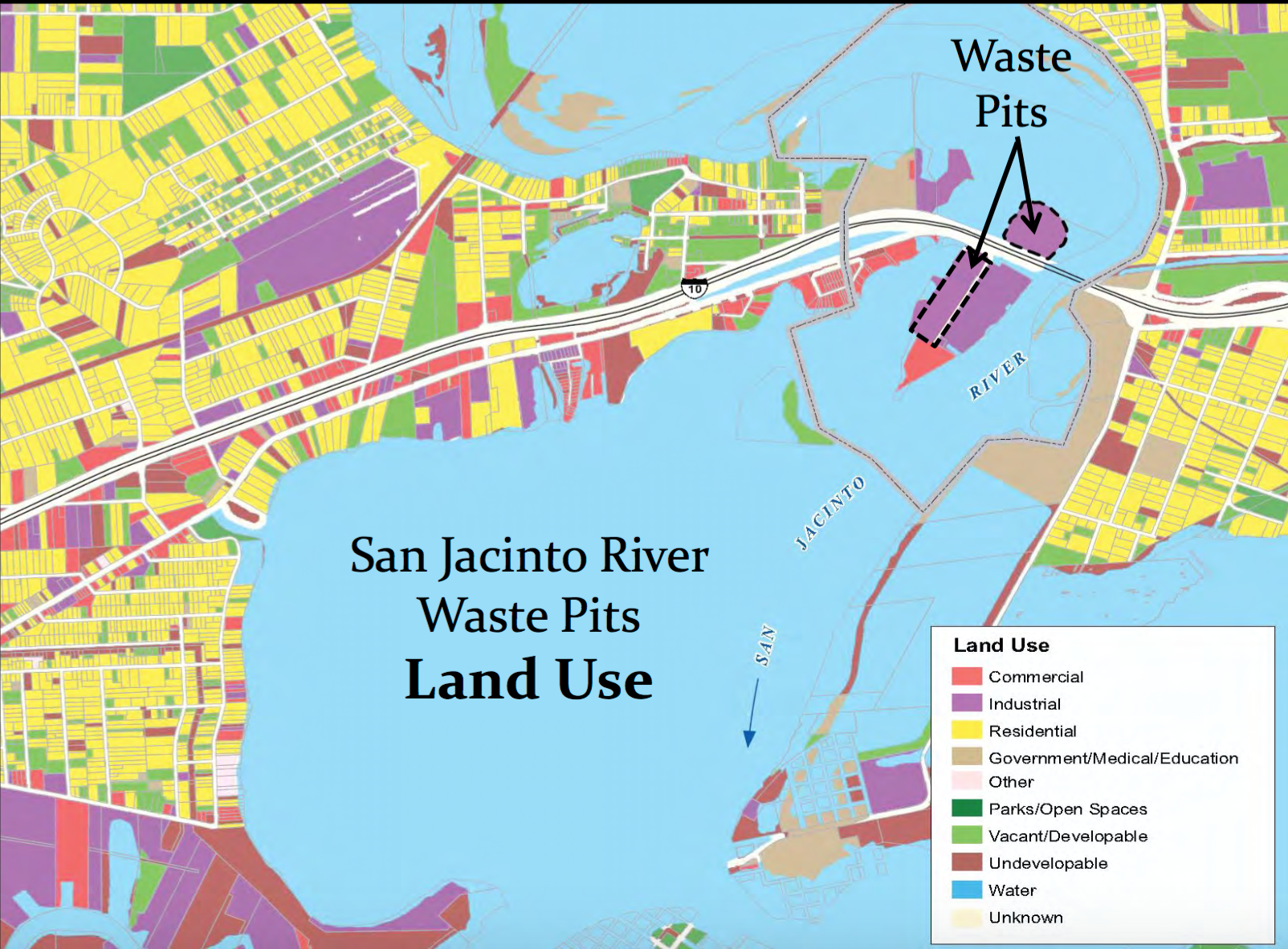The river dump site in the San Jacinto River, near Channelview just east of Houston, has long been a concern for the communities nearby.
Residents argue their elevated cancer rates are connected to the toxic waste dumped in the water in the 1960s. Complicating the situation is a U.S. Army Corps of Engineers report from 2015 warning that cleaning up the Superfund site could be just as harmful as leaving it there.
Now, as another hurricane season approaches the Gulf Coast, the potential of fallout from the 14-acre site continues. Sam Brody, a professor at Texas A&M University and a fellow with the Kinder Institute for Urban Research, says the site is vulnerable to storm surges, prompting even more reason to worry about the communities on either site of the toxic pits.
"We should clean this site up. It's a no-brainer," Brody told Houston's KRIV Fox26 Thursday. "If my children were living in that area, I'd be very worried." Article continues below video.
The site has been a concern for years, with a recommendation expected soon from the Environmental Protection Agency about what, exactly, should happen next.
Waste from the former Champion Paper Mill, now International Paper, in nearby Pasadena was first dumped into the pits in the mid-1960s, according to the Galveston Bay Foundation. Over time, the pits sank as a result of groundwater pumping and were eventually submerged underwater. The pits were later capped beneath a blanket of crushed rocks, but elevated levels of dioxins and other hazardous chemicals from the waste pits were present in sediment and soil, as well as fish and other animals.
In 2008, the EPA designated the pits a Superfund cleanup site.
Then, in 2011, Harris County sued McGinnes Industrial Maintenance Corp., Waste Management Inc. and International Paper over the damage. Dozens of community members, including fishermen, joined the lawsuits. But next steps for the site were unclear.
In 2014, Brody released a study of the dangers of the site. "I think this is a loaded gun, in terms of a catastrophe," he said at the time. "Not just from flooding, but environmental as well. And not just to the residences, but the bay as a whole, which is one of our major treasures of our Texas Coast."
 The Superfund site is location within the sandy area along I-10. Image via flickr/Gulf Restoration Network.
The Superfund site is location within the sandy area along I-10. Image via flickr/Gulf Restoration Network.
The Houston Chronicle reported in 2015 that the Army Corps of Engineers believed the cap was expected to survive "unusual catastrophic events," only needing repairs and that any associated leakage would be comparable, or less, than if the toxic, dioxin-filled sludge was removed. Just months later, holes were found in that cap.
Brody told Fox26 Thursday that the Federal Emergency Management Agency recently upgraded the warnings about the site, saying it was now subject not just to rising floodwater but "velocity waves hitting that site...So we know that area is subject to extreme force."
Earlier this year, the EPA began requiring 24/7 monitoring of the site.
After recent flooding this year, "Several large logs and other debris were found on the cap," the EPA said, "however there was no disturbance of the armor cap near the debris."
The agency is expected to give its recommendation regarding site cleanup by July 28.


